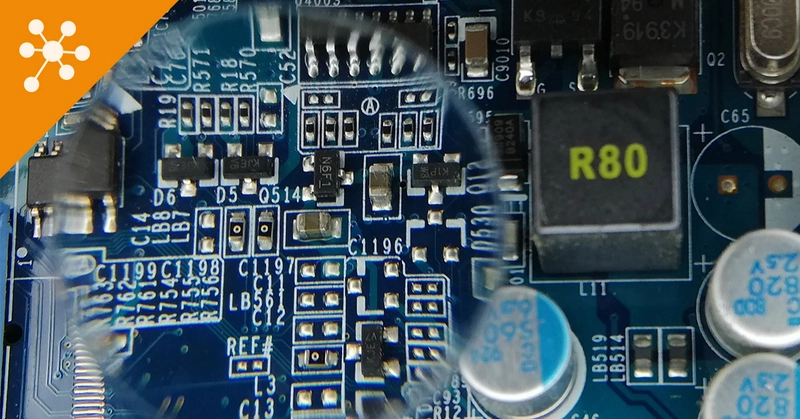
When working with electronics, we often need to see more than what’s visible with the naked eye
Tools designed to enhance 'normal' human vision usually have a dual function: they focus a powerful light source on whatever you're looking at, while also magnifying it.
Inspection cameras go a step further by being able to physically enter confined spaces – ranging from down a drain to the inside of an appliance – giving you an up-close view that might be impossible to obtain in any other way.
Some feature a camera tube that's just 5.5mm in diameter, and rolls up into the body of the display/recording unit. They're incredibly useful for diagnosing faults inside appliances without disassembly, as well as retrieving small items such as jewellery using the included hook and other accessories.
For really extreme magnification, use a USB microscope. It's much easier and more convenient to use than a conventional microscope, since its image is projected onto your computer screen, and you can record footage or take screenshots of what you're observing. They can be invaluable for fault detection, for example after water ingress or impact damage to a smartphone.
Magnifying lenses mounted on a wearable headband can be a more user-friendly option than an eyepiece lens. A headband-mounted magnifier has LED lighting that can be angled to brighten up exactly what you need to see. And a third hand with illuminated magnifier gives you a convenient all-in-one solution for accurate soldering.
You can even check dimensions of whatever you're looking at using a handheld magnifier with a graduated scale. This lets you to take accurate measurements in increments smaller than a millimetre, using both metric and imperial units. This can be particularly handy to identify fastener diameters or check available spacing for components.
The gold standard in illuminated magnifiers for electronics work is undoubtedly a clamp-mount unit on an articulated arm. This features a ring of 60 LEDs around a high-quality magnifying lens, which can be replaced with higher-dioptre lenses if required. A more compact version is also available, which is less expensive, but trades off the range of movement and ease of manoeuvring that are trademarks of the larger unit.
Read more about workshop wonders you never knew you needed.

